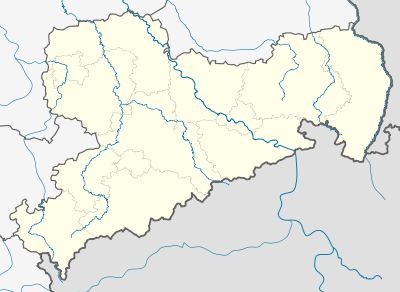Battle of Chemnitz
The Battle of Chemnitz (14 April 1639) took place near the town of Chemnitz, in what is now eastern Germany, during the Thirty Years' War. Swedish forces under Johan Banér inflicted a crushing defeat on Rodolfo Giovanni Marazzino who commanded the Saxons and an Imperial detachment.[1][2]
| Battle of Chemnitz | |||||||
|---|---|---|---|---|---|---|---|
| Part of the Thirty Years' War | |||||||
| |||||||
| Belligerents | |||||||
|
|
| ||||||
| Commanders and leaders | |||||||
|
|
| ||||||
| Strength | |||||||
| 6 cavalry regiments | 5,000 men | ||||||
| Casualties and losses | |||||||
| 500 killed or wounded |
2,000 men
| ||||||
 Location within Saxony  Battle of Chemnitz (Germany) | |||||||
Battle
The battle was a confused engagement in broken country north of Chemnitz. After a forced march to the area, the Swedish forces were able to rout a large portion of the opposing forces,[1] capturing their baggage train, and taking 1,500 prisoners.[1]
Notes
- Wilson 2009, p. 614.
- Wedgwood 1938, p. .
gollark: 1 + 1 = 20 + 1 = 1-1 + 1 = 0-1 + 2 = 1
gollark: https://media.discordapp.net/attachments/645777807275851776/802406758655721472/image0.png?width=435&height=422
gollark: You prove that if ¬X is true, badness occurs, so X is true instead.
gollark: Prove this by contradiction.
gollark: DOES it have better performance?
References
- Wedgwood, C.V. (1938), The Thirty Years War, Pimlico, ISBN 0-7126-5332-5
- Wilson, Peter Hamish (2009), The Thirty Years War: Europe's Tragedy (illustrated, reprint ed.), Harvard University Press, pp. 614, ISBN 9780674036345
This article is issued from Wikipedia. The text is licensed under Creative Commons - Attribution - Sharealike. Additional terms may apply for the media files.